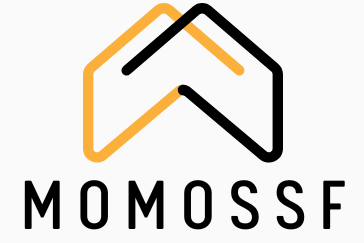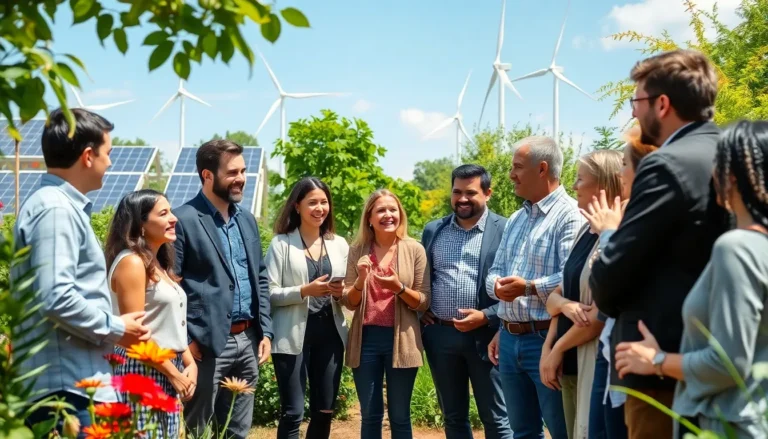In a world where fast fashion reigns supreme, sustainable fashion events are like a breath of fresh air—or maybe more like a chic breeze blowing through a thrift store. These gatherings not only showcase eco-friendly designs but also celebrate creativity, innovation, and the art of looking fabulous while saving the planet. Who knew being stylish could come with a side of sustainability?
Table of Contents
ToggleOverview of Sustainable Fashion Events
Sustainable fashion events showcase a range of eco-conscious designs, promoting ethical practices across the industry. Such gatherings provide a platform for designers who prioritize environmental responsibility in their work. Notably, many events feature panels and workshops aimed at educating attendees on sustainable practices.
Exhibitions highlight innovative materials, like organic cotton and recycled fibers, which contribute to reducing the fashion industry’s carbon footprint. Fashion shows often focus on upcycled creations, demonstrating how waste can be transformed into stylish apparel. Various brands participate in these events to present their commitment to sustainability, fostering collaboration among like-minded companies.
Each event attracts diverse audiences, including consumers, industry professionals, and influencers, all eager to learn and support sustainable initiatives. New York Fashion Week, for instance, introduced sustainable collections, garnering attention from both media and attendees. The event emphasizes the importance of transparency in production processes, encouraging brands to share their sourcing methods.
Additionally, numerous global events take place throughout the year, including the Copenhagen Fashion Summit and Amsterdam Fashion Week. These international platforms facilitate discussions on tackling climate challenges within the fashion sector. Networking opportunities abound, allowing participants to connect with others passionate about sustainability.
Local organizations often host community-focused events, enabling grassroots movements to gain traction. Community workshops empower individuals to adopt sustainable habits, such as clothing swaps and DIY upcycling sessions. Engaging with the public fosters a deeper understanding of the impact of fashion choices on the environment.
Sustainable fashion events continue to reshape the industry landscape, championing a shift towards more responsible consumption.
Importance of Sustainable Fashion
Sustainable fashion plays a crucial role in transforming the fashion industry. It emphasizes eco-friendly practices that benefit the environment and society.
Environmental Impact
Sustainable fashion significantly reduces environmental degradation. Eco-friendly materials like organic cotton and recycled fibers minimize resource consumption. Manufacturing processes in sustainable fashion often use less water and energy, leading to decreased carbon emissions. Waste reduction becomes a priority through upcycled designs, turning discarded materials into new fashion items. Events that showcase these practices raise awareness, encouraging attendees to rethink their consumption habits. Fashion shows that prioritize sustainability highlight the importance of transparency, ensuring consumers understand the environmental costs of their choices. By emphasizing this aspect, sustainable fashion events contribute to a lower fashion industry’s carbon footprint.
Social Responsibility
Sustainable fashion promotes social equity within the industry. Ethical labor practices ensure fair wages and safe working conditions for garment workers. Many designers involved in sustainable initiatives focus on transparency in their supply chains, allowing consumers to make informed decisions. Workshops at sustainable fashion events educate attendees about the importance of ethical consumption and social justice. Collaboration among brands fosters community initiatives that empower marginalized groups within the fashion ecosystem. Investing in local artisans and craftspeople supports economic development and preserves cultural heritage. As a result, sustainable fashion becomes a catalyst for promoting social responsibility in global markets.
Notable Sustainable Fashion Events
Sustainable fashion events are reshaping the industry and spotlighting responsible practices. They champion eco-conscious designs, engage diverse audiences, and ignite creative dialogue.
New York Fashion Week: Sustainability Edition
New York Fashion Week’s Sustainability Edition highlights innovative designers committed to eco-friendly practices. Showcasing collections made from organic fabrics or upcycled materials emphasizes creativity without compromising the environment. Industry leaders, including notable brands, participate, promoting ethical production methods. Panels featuring experts educate attendees on sustainable practices, fostering a culture of responsibility. Collaborations between established designers and emerging talent amplify the conversation around conscious consumption. Engaging the audience sparks a movement towards more responsible fashion choices, making this event central to the sustainable fashion narrative.
London Fashion Week: Eco-Focused Initiatives
London Fashion Week prioritizes eco-focused initiatives, bringing attention to climate change solutions within the fashion sector. Designers present collections that utilize renewable materials and innovative recycling techniques. The event encourages sustainable innovation, influencing global trends through responsible design. Workshops and discussions ignite dialogue on topics like ethical labor practices and waste reduction, enriching the attendee experience. Many brands actively engage with local artisans, promoting fair wages and transparency in supply chains. This dedication enhances social equity, positioning London Fashion Week as a key player in the sustainable fashion movement.
Highlighting Innovations in Sustainable Fashion
Sustainable fashion events spotlight groundbreaking advancements that redefine the industry. They showcase innovative approaches, particularly in the use of eco-friendly materials and ethical production methods.
Eco-Friendly Fabrics
Innovative fibers form the foundation of sustainable fashion. Many designers incorporate organic cotton and Tencel, both derived from sustainable sources, into their collections. Bamboo and hemp also gain recognition for their minimal environmental impact. These materials typically require less water and fewer chemicals compared to conventional textiles. Brands leverage recycled polyester made from plastic bottles, illustrating creative solutions to combat waste. During events, exhibitors frequently highlight advancements in biodegradable fabrics that decompose without harming the environment. Attendees experience firsthand how these eco-friendly fabrics contribute to reducing the carbon footprint of the fashion industry.
Ethical Production Practices
Ethical production practices serve as a cornerstone of sustainable fashion. Many brands adhere to fair labor standards, ensuring garment workers receive fair wages and safe working conditions. Events often feature panel discussions that educate attendees on the importance of transparency in supply chains. Efforts to eliminate exploitative practices resonate strongly among consumers. By prioritizing local artisans, brands foster economic growth and empower communities. Some organizations showcase craftsmanship rooted in cultural heritage, promoting respect for traditional techniques. Collaborations among designers and manufacturers aim to create a more equitable fashion landscape. Event-goers engage with brands committed to integrating ethical practices into their operations, fostering a culture that values social responsibility.
Sustainable fashion events are paving the way for a new era in the industry. They inspire creativity while emphasizing the importance of eco-friendly practices and ethical production. By showcasing innovative materials and upcycled designs, these events challenge traditional consumption habits and encourage attendees to embrace sustainability.
The collaboration among designers and local organizations fosters a community committed to social equity and environmental responsibility. As more individuals and brands recognize the impact of their choices, the momentum for sustainable fashion continues to grow. This shift not only transforms the fashion landscape but also promotes a healthier planet and a more equitable society. The future of fashion lies in sustainability, and these events are leading the charge.






